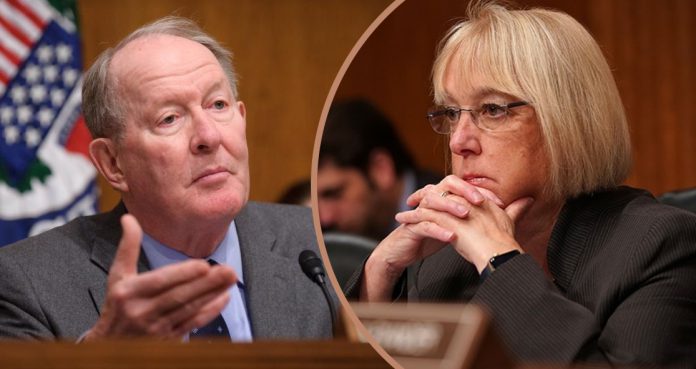The Senate Health Committee leaders are urging the Congressional Budget Office (CBO) to look after possible options that can help protect patients from hefty and surprise medical bills.
According to Senate advisors, Sen. Patty Murray and Chairman Lamar Alexander have sent the options for analysis and evaluation to the CBO.
In order to address the “surprise medical bills,” a serious issue where there is a possibility of bipartisan action this year, the legislators are about to move forward.
The aim is to stop and prevent instances of surprise medical bills. For instance, last year, a Texas teacher received bill of $108,951 after getting emergency care for heart attack because the hospital was not covered in his insurance network.
The action of Alexander and Murray is preliminary so the lawmakers are yet to define the strategies for any such legislation. They are among the top bipartisan dealmakers in the Senate.
They have been working with a bipartisan group of senators Bill Cassidy, Michael Bennet, and Maggie Hassan to discuss the issue.
In 2017 and 2018, Alexander and Murray tried to pass an agreement to stabilize ObamaCare; however, they were unfortunately unsuccessful in doing so.
Alexander, since then, wanted to move on from discussing the health care law that is politically influenced. Instead, he started focusing on reducing health care costs and contradicting surprise medical bills.
The industry groups and lawmakers in both parties have come to an understanding that patients should not be getting massive and surprise medical bills.
There is a debate on determining how much fees the insurer has to give to the doctor and to the hospital. Insurers, doctors, and hospitals are not getting agreed upon the common details and reluctant to take a financial hit in the lawmaking process.
Furthermore, the duo sent a set of plausible options on those details to the CBO.
They provided the first option to have an arbitrator who can determine how much the insurance company pays the physician or hospital. The second option is to set the amount as per the percentage of Medicare’s compensation rates or something equivalent, whereas the third option is sending a single bill to the insurance company from the hospital, and not allowing doctors within the hospital to independently charge the insurer at expensive prices.
Apart from them, the duo sent other plausible options to the CBO. Alexander told newspersons in January, “People go to the emergency room and they suddenly are surprised a few weeks later with a bill for $3,000 from an out-of-network doctor. We don’t want that happening, so one way or the other I expect to see that addressed in the next several months.”























